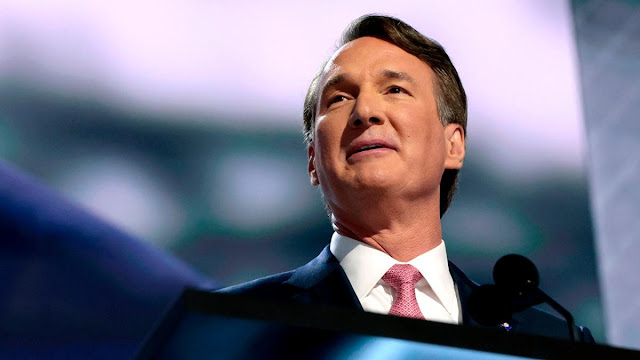U.S. Justice Department Sues Virginia for Purging Voters Before Election
Introduction
U.S. Justice Department Sues Virginia for Purging Voters Before Election In a huge improvement a very short ways off of an impending political race, the
U.S. Division of Equity (DOJ)** has recorded a claim against the province of **Virginia**, blaming it for unlawfully cleansing citizens from the state's electing rolls. The lawful activity has ignited worries about casting a ballot rights and the trustworthiness of the electing system, especially as races approach. This case causes to notice more extensive public issues encompassing elector concealment, political decision security, and residents' privileges to partake in fair cycles.
The Claims: Elector Cleanse in Virginia
The Equity Division's claim charges that **Virginia political race officials** disregarded government regulation by eliminating qualified electors from the citizen rolls in the number one spot up to a significant political race. As per the DOJ, a great many electors were cleansed in what it depicts as a work to tidy up the state's citizen enrollment list, however the cycle purportedly neglected to observe lawful guidelines intended to shield electors from illegitimate evacuation.
The claim bases on the **National Elector Enrollment Act (NVRA), regularly alluded to as the "Engine Citizen Act." This government regulation lays out rules that states should adhere to while keeping up with citizen enlistment records to guarantee that residents are not unreasonably disappointed. The DOJ asserts that Virginia neglected to give appropriate notification to citizens who were in danger of being cleansed and didn't permit sufficient time for electors to challenge their expulsion from the rolls, consequently disregarding their freedoms under the NVRA.
Suggestions for Casting a ballot Rights and Political race Integrity
The case brings up significant issues about **voter suppression** and the more extensive issue of keeping up with precise and modern elector rolls while safeguarding qualified residents' on the whole correct to cast a ballot. On one hand, states have an obligation to keep their elector enlistment data sets perfect and liberated from obsolete or copy passages. Then again, cleansing electors without following fitting lawful cycles can disappoint enormous quantities of individuals, especially minimized gatherings, including minorities, low-pay citizens, and the people who may not know that they've been taken out.
The DOJ's activity against Virginia flags that the national government is standing firm against rehearses that might subvert **voting rights** and possibly slant political decision results. Casting a ballot is perhaps of the most key solidly in a majority rules government, and the evacuation of citizens without legitimate protections could have serious ramifications for the trustworthiness of political decision results.
Virginia's Reaction to the Lawsuit
Virginia's political race authorities have answered the claim by shielding their activities as essential for guaranteeing clean elector rolls in front of the political race. They contend that the state has been adhering to the rules illustrated by the **Virginia Division of Elections** and that any blunders were not deliberate endeavors at elector concealment.
In any case, pundits of the state's activities say that the planning of the cleanse, so near a political race, raises warnings. They contend that blunders in the elector roll cleansing cycle excessively influence weak gatherings and can prompt **widespread disenfranchisement**.
Virginia Lead representative Glenn Youngkin** has not offered an immediate expression with respect to the claim, however his organization's position is probably going to confront investigation as the case pushes ahead. The planning of the cleanse, combined with the legitimate activity, puts the state's political decision rehearses under the public spotlight.
Public Ramifications and Verifiable Context
Virginia's circumstance is definitely not a segregated case. Across the U.S., states regularly participate during the time spent refreshing their citizen rolls, yet these activities frequently draw analysis when they are viewed as being excessively forceful or misused. Comparable claims have been recorded in different states, where electors have been unfairly cleansed for the sake of keeping up with modern citizen records. This issue has become particularly quarrelsome as of late, as discussions about **voter fraud** and **election security** have become the overwhelming focus in American governmental issues.
By and large, citizen cleanses have at times been utilized as an instrument of elector concealment, lopsidedly focusing on minority gatherings and the people who might experience issues getting to casting a ballot assets. This claim may, thusly, be viewed as a component of a more extensive fight over **voting rights** in the U.S., particularly with regards to other legitimate difficulties the nation over in regards to citizen ID regulations, truant democratic limitations, and other political decision guidelines.
What's Next for the Lawsuit?
The claim documented by the DOJ is still in its beginning phases, yet it could have huge ramifications for the impending political race in Virginia. Assuming the court decides for the DOJ, Virginia might be expected to reestablish citizens who were cleansed inappropriately and make remedial moves to guarantee that such blunders don't happen from here on out.
Also, the case might prompt changes in how citizen roll cleanses are directed, in Virginia as well as the nation over. It could start a legitimate trend for how states should consent to the Public Elector Enlistment Act and could impact different cases with respect to citizen freedoms and political race honesty.
The More extensive Battle for Casting a ballot Rights
The claim against Virginia features the continuous battle to adjust political decision security with **voter access**. On one hand, states need to guarantee that their citizen enrollment records are exact to forestall extortion and guarantee a smooth discretionary cycle. Then again, they should guarantee that these endeavors don't disappoint qualified electors, especially in key political race years.
This case is essential for a bigger public discussion about the job of **federal oversight** in decisions, as well as the degree to which state legislatures ought to be permitted to oversee elector rolls freely. As this case unfurls, it will probably draw consideration from backing bunches on the two sides of the political range, from the people who contend for more tight political decision security to the individuals who are battling to extend casting a ballot access.
Determination: A Pivotal Second for Democracy
The U.S. Division of Equity's claim against Virginia over elector cleanses highlights the basic significance of fair political decision rehearses and safeguarding the option to cast a ballot. As the case pushes ahead, it could have significant ramifications for the fate of decisions in Virginia and across the U.S., possibly molding how states oversee citizen rolls and maintain political race uprightness. In when decisions are progressively examined, guaranteeing that each qualified elector has the valuable chance to take part in the majority rule process is fundamental.






